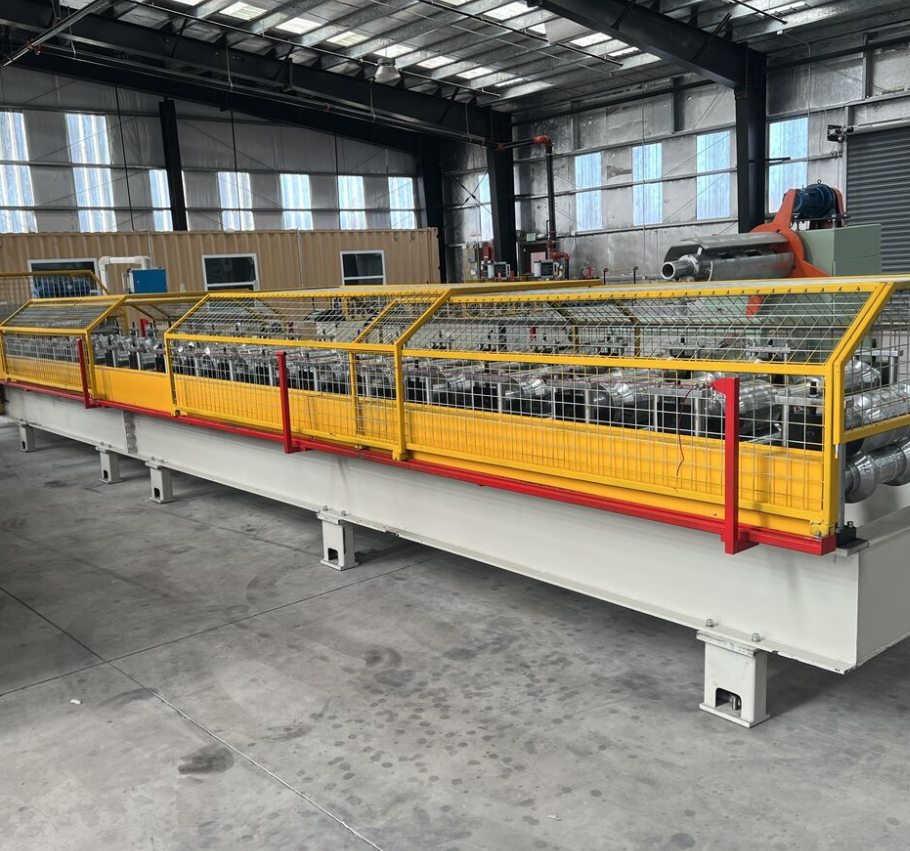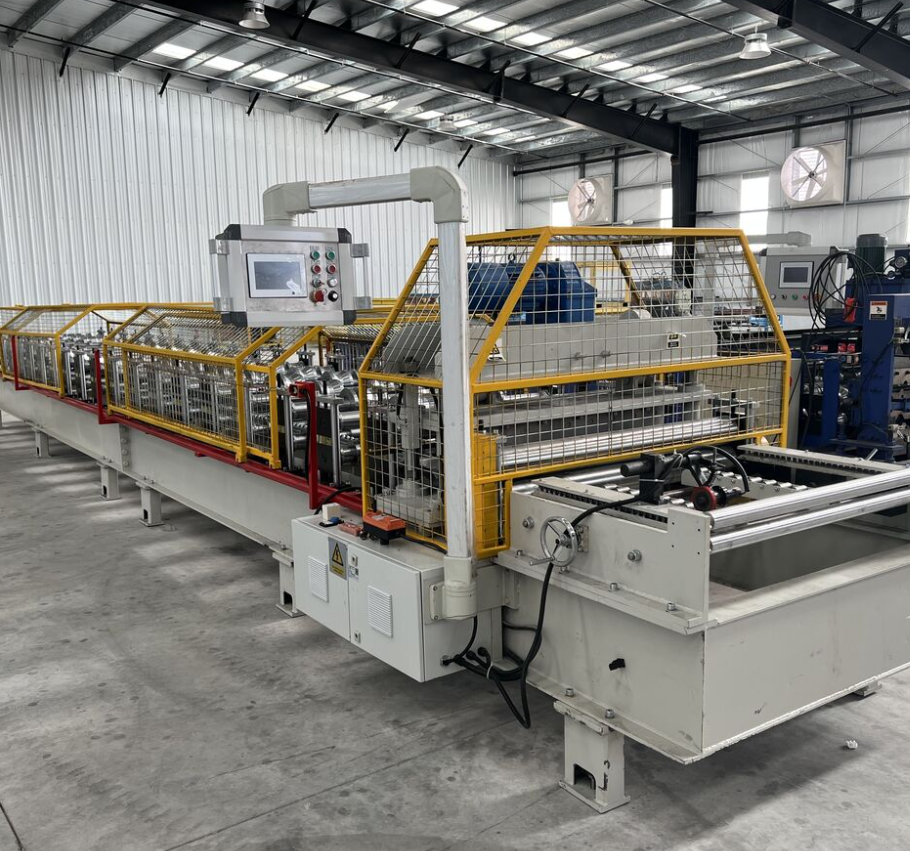To express an interest in this machine please submit the form below.

Not Sure What Machine You Need?
Select Your Profile, We'll Match It
Choose your desired profile drawing, and let Machine Matcher connect you with the best roll forming machine tailored to your needs.
Browse Profiles



A roof roll forming machine is a specialized manufacturing system designed to produce various types of roofing panels efficiently and with precision. This machine is a critical asset for construction projects in Virginia, where high-quality roofing is essential to withstand diverse weather conditions, including hurricanes and snowfall.
The machine forms flat metal coils into roofing profiles by passing them through successive roller dies. Its automated operation ensures consistent accuracy and enables the production of roofing materials in bulk, reducing manufacturing time and costs.
Key applications include residential, commercial, and industrial construction projects.
Q1: What is the typical production capacity of a roof roll forming machine?
A1: The production capacity varies by model but typically ranges from 10-15 meters per minute for standard machines and up to 40 meters per minute for high-speed machines.
Q2: What materials can the machine process?
A2: It can process galvanized steel, pre-painted steel, aluminum, and copper, with thicknesses ranging from 0.3-0.8 mm.
Q3: Can the machine produce custom profiles?
A3: Yes, the PLC system allows for easy customization of profiles. You can create various designs to meet specific roofing needs.
Q4: Is the machine suitable for small-scale businesses in Virginia?
A4: Absolutely. With its adjustable speed and profile flexibility, the machine is suitable for both small-scale and large-scale operations.
Q5: How does the machine ensure accuracy in panel dimensions?
A5: The integrated PLC system and high-precision cutting system maintain accuracy to within ±0.5 mm.
Q6: What kind of maintenance does the machine require?
A6: Regular lubrication of moving parts, cleaning of rollers, inspection of electrical components, and calibration of the PLC system ensure optimal performance.
Q7: Are spare parts readily available in the United States?
A7: Yes, spare parts are widely available, and most suppliers offer after-sales support to ensure seamless operation.
Q8: What safety measures are in place?
A8: The machine is equipped with emergency stop buttons, safety guards, and electrical overload protection to ensure operator safety.
Copyright 2026 © Machine Matcher.